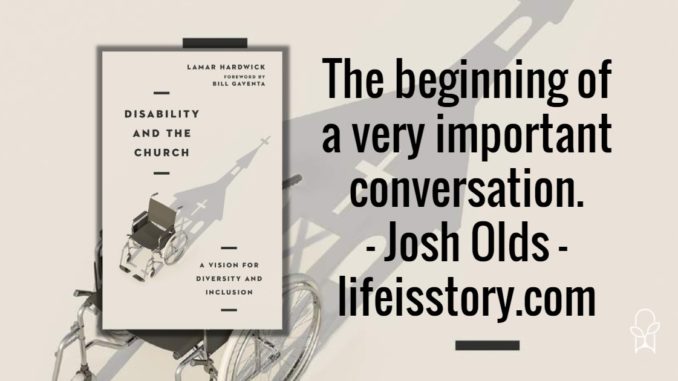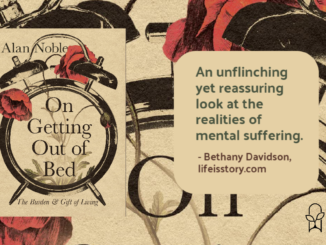
Also by this author: How Ableism Fuels Racism: Dismantling the Hierarchy of Bodies in the Church
Published by IVP on February 9, 2021
Genres: Non-Fiction, Christian Life
Buy on Amazon
Goodreads

Lamar Hardwick was thirty-six years old when he found out he was on the autism spectrum. While this revelation helped him understand and process his own experience, it also prompted a difficult re-evaluation of who he was as a person. And as a pastor, it started him on a new path of considering the way disabled people are treated in the church. Disability and the Church is a practical and theological reconsideration of the church's responsibilities to the disabled community. Too often disabled persons are pushed away from the church or made to feel unwelcome in any number of ways. As Hardwick writes, This should not be. He insists that the good news of Jesus affirms God's image in all people, and he offers practical steps and strategies to build stronger, truly inclusive communities of faith.
When my wife as was a teenager, she served as a Sunday School volunteer for a well-known megachurch. One of the children in her class had special needs and the church—though it is one of the largest in the country—was not prepared to deal with it. They would not listen to the kids’ parents. They would not meet the kid where he was at. And it ended with the family leaving the church and my life being removed from the classroom for speaking up in support of the family.
Early in Disability and the Church, Dr. Lamar Hardwick notes that stories like this are not uncommon. In fact, 86% of families who have autistic children leave the church and don’t come back because they do not feel welcomed. And that’s only one facet of special needs. Churches aren’t subject to laws surrounding the Americans with Disabilities Act, meaning that their facilities don’t have to adhere to certain accessibility standards. By and large, the church has not done well in welcoming and caring for individuals with disabilities.
With Disability and the Church, Lamar Hardwick presents a different vision. When I began the book, I was anticipating getting immediately into nitty-gritty practical changes. How wide should hallways be? Where are places we don’t have hand rails? How can we make parking easier? And all of these are good questions, but Hardwick begins with the heart. What’s primarily needed in churches is not ADA compliance or more training (though definitely yes to those things), but an ecclesiology that sees the disability community as fully a part of the church. The disabled are part of the church, not a group the church ministers to, not an outreach. They are the church—and the leadership and direction of the church should include them and represent them.
Hardwick also challenges the church to look at certain disabilities as differences. For instance, Hardwick is neurodiverse. In his 30s, he received a diagnosis of autism. This isn’t necessarily a disability as it is a different ability. His brain is wired differently than the majority of people and gives him strengths and weaknesses that might be different than what is typical. He writes that the actual impairment isn’t what is most disabling—it’s that societal structure isn’t set up in a way that’s friendly to those in the disability community. Most church programming isn’t friendly to the disability community because it wasn’t created with them in mind. The solution is to intentionally invite inclusivity by making sure that those with disabilities are not just invited, but involved.
Disability and the Church never does get around to addressing those easy, practical, obvious things to do. And, as I learned in the book, that’s okay. It’s not about those things. Well, it is. But it’s not about reading a book to find out how your church can be more inclusive. It’s about inviting in those who have been excluded and empowering them to make the changes that helps them be a part of the community. Disability and the Church is the beginning of a very important conversation, one we must have if we are going to truly mirror Christ and his mission.



